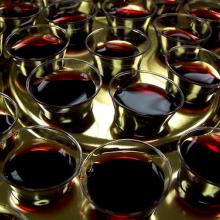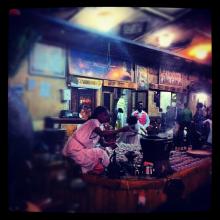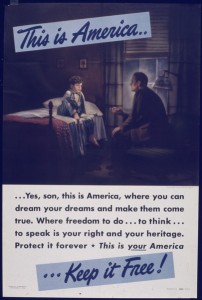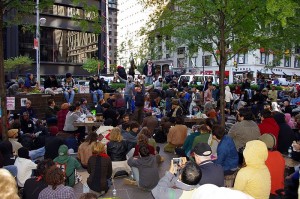sacrament
An advisory group to U.S. bishops urged the Catholic leaders on Tuesday to avoid making Communion “a tool for division” as debate resurfaces in Catholic circles over whether President Joe Biden’s support for abortion rights should disqualify him from receiving the sacrament.
Gathered in a Baltimore hotel ballroom, the bishops’ conference is scheduled to discuss a draft of a document clarifying the meaning of Holy Communion, a sacrament central to the faith.
The bishops have been divided over how explicitly the document should define the eligibility of prominent Catholics like Biden to receive Communion due to political stances that contradict church teaching.
As Shamika and I called upon our own experiences in church and seminary, we became especially concerned with providing a resource for those who historically have been barred from participation at the Lord’s Table: the divorced, Christians of color, LGBTQ believers, those living far from physical community, or far from a church that is physically accessible. While we’re not trying to replace “brick and mortar” community, we believe God calls us beyond a spirit of fear in the face of innovations in technology.
Anyone who thinks much on theology will tell you that you go through patterns of thought. For a long time, I was intrigued — and still am in many ways — by the notion of Jesus as a “third way” prophet, offering something different than both church and secular culture most of the time. As I learned of different interpretations of the crucifixion, I became obsessed with nonviolent activism, and the idea of responding to force or bloodshed with something else entirely.
Now, my latest mental track is sacrament. I am interested in what makes something a sacrament, yes, but also in the power connected to sacraments and what human beings do with that power.
I am part of the Christian Church (Disciples of Christ), a denomination that has Alexander Campbell as part of its roots. Campell was notorious for supposedly causing a stir in his local church around the sacrament of communion. At that time, the Church handed out tokens to those it deemed worthy to participate in communion. No token? No communion. So this one particular day, Campbell entered the church with his token in hand, but when they offered the elements to him, he refused, tossing the token on the ground and walking out. He went on to help start the Disciples based, in large part, on the concept of the open communion table.
The rite of baptism got big press as Archbishop of Canterbury Justin Welby christened Prince George, a future king of England on Wednesday.
Welby made it a teachable moment for a country where only one in six are baptized. In a YouTube video, he explains that by bringing their son forward for baptism, Prince William and Duchess Catherine are “bringing God into the middle of it all.”
Last month, Pope Francis gave the sacrament a boost when he called a pregnant, unmarried woman to encourage her faith and offered to baptize her baby. While his main message was anti-abortion, his call also reminded Catholics that children of unmarried parents are welcome in the church.
SOIL AND SACRAMENT is Fred Bahnson’s story of finding God through sustainable farming. A trained theologian, he learns to best live out his faith with shovel in hand, practicing a method of permanent agricultural design principles called “permaculture.”
We follow him through the liturgical year on an agrarian pilgrimage from one faith community to another, digging into the big question of how to best love his neighbor. His answers are uncovered through building relationships and healthier soil, communing with others and his Creator in the field. From jail cell to monastic cell, from a rooftop in Chiapas to his four-season greenhouse, Bahnson finds the intersection of community and solitude between the field rows. Just like the first Adam from the adamah (earth), we learn how to give more to the soil than we take away and to reverently observe the garden as fruitful and multiplying. “Human from humus”—he had me at hugelkultur. (Look it up—it’s really cool.)
Bahnson begins his pilgrimage in a Trappist monastery in South Carolina during Advent, joining the brothers in prayer and mushroom-growing practices, entering the dark cold winter silence of vigils and the soil. Bahnson then flashes back to 2001, to Holy Week in Chiapas with a Christian Peacemaker Team accompanying the Mayan Christian pacifist civic group Las Abejas—“The Bees.” In Chiapas we sit and eat with Bahnson on Maundy Thursday, corn tortillas and slow-cooked black beans made into holy elements, partaking of an “ancient and unnamed liturgy,” eating our way into mystery. Bahson ordains the creatures of the earth as perennial ministers of the soil, notes the transubstantiation of seed and potluck as Eucharist. He writes of beginning to think of growing food as the embodiment of loving his neighbors, the journey of the liturgical calendar through the mystery of soil. The book is a slow dance, a cosmic one-turn around the sun.
LEE DANIELS’ The Butler, a century-spanning tale of race in the United States and service in the White House, is a dream of a film—by turns historically realistic and magically fable-like. It’s a perfect companion piece to last year’s Django Unchained, in that case a movie whose tastelessness wrapped up as fabulous entertainment forced audiences to engage with a deeper level of the shadow of U.S. history.
Based on the story of Eugene Allen, a black man who served multiple presidents in a White House that took its own time to desegregate its economic policies for domestic staff, The Butler begins with a rape and a murder of plantation workers by the son of the boss. The ethical quality of the film is immediately apparent. This horror is not played for sentiment, nor even spectacle, but to evoke the very ordinariness of monstrosity.
This makes The Butler a rare film: one more interested in confronting us with a kind of previously unspoken truth than in goading us to feel the catharsis of guilt-salving by association. (It’s the antithesis of films such as Mississippi Burning, which use white protagonists to tell black stories and appear to believe that we can somehow participate in the virtue of the civil rights movement just by watching a movie about it.) The makers of The Butler have told a kind of truth about the struggle for “beloved community” that has rarely been seen so clearly on multiplex screens. The film illustrates the serious and painful work of nonviolence and invites us to consider the political and cultural tensions within the black freedom struggle, while giving a more humane perspective on the presidency than is often the case. We can hope the door is now open to more reflective cinema about the unfinished business of the black civil rights movement, broken relationships, traumatic memory, and how we tell the story of who we are.
AFTER SEVEN YEARS of theological, historical, and pastoral conversation, leaders of Reformed and Catholic churches in the U.S. this January signed a carefully worded, one-page agreement to mutually recognize the sacrament of baptism as it is practiced in each other's churches. This agreement represents dedicated—and inspiring—ecumenical work.
The agreement was signed by representatives of the Christian Reformed Church in North America, the Presbyterian Church (USA), the Reformed Church in America, the Roman Catholic Church, and the United Church of Christ. This agreement is not unprecedented, coming as it does nearly five decades since Vatican II's decree on ecumenism, in which the Catholic Church recognized non-Catholic baptism whenever "duly administered as Our Lord instituted it, and ... received with the right dispositions." However, for each tradition, baptism gives sacramental expression to that tradition's understanding of the church and what it means to be a member. For these churches to recognize each other's baptismal rites gives visible witness to their mutual desire for unity among the members of Christ's body.
This desire for unity between the churches is not an add-on to the gospel; it is not something we do if we happen to get to it. It is central to the saving work and mission of Jesus.
This January's agreement is spare in its requirements. It states that the use of water and a reference to the Trinity (Father, Son, and Holy Spirit) are all that are needed for mutual recognition. By specifying these two simple elements, the ecumenical team made a decision to respect the liturgical tradition of each church. The unique way that components of the rite have developed in each church—how catechesis is done, the use of scripture, the use of sponsors, anointing, and other elements—do not need to be changed.
I’m known for holding an alternative view on salvation than many Christians – even Disciples — maintain, in that I do not adhere to the doctrine that Jesus died for our sins. I know there are lots of scriptures to back this position, and one can also use scripture to justify other explanations for Jesus’ death. As many of us have seen, the Bible can be, and has been, used to justify nearly any position we care to use it to support. As for me, I’ve done years of searching, praying, discussing, and reading, and my conclusion is that it is the love of God as manifest by Jesus that is redemptive, and not Jesus’ blood.
I know some folks will likely stop here, discrediting anything else I have to say because of this perspective, which is unfortunate, but which I also understand. But a family member recently asked me about my take on communion if, in fact, I don’t ascribe to the idea that Jesus was saying “this is my body broken and my blood poured out for the remission of your sins.”
Back home in California, we recently purchased one of those one-cup-at-a-time Kuerig coffee makers after running through two high-end traditional coffee machines in 18 months. (Two writers in one house equals a high rate of coffee consumption.) While I think it was the proper choice for us – we waste less coffee this way, and have bought one of those reusable pods so that we’re not always using recyclable-but-still-plastic-and-not-terribly-ethical disposable pods pre-filled with the coffee of our choice.
I brought home a pound or so of ground coffee from Ethiopia and we’ve tried to get the amount of grounds and water pressure just right to replicate the drink I’d had in Africa.
Nothing doing.
Ethiopian coffee ceremony a la Keurig is too fast, too easy, and much too weak in myriad ways.
In coffee ceremonies back in Africa, the beans were ground by hand with a mortar and pestle. They’d be uneven. Chunky. When steeped, the coffee needed to be sieved over and over to make the final product perfectly potable. It took time, patience, and a practiced hand. It also required a different kind of regard for the act itself: the woman preparing the coffee wasn't simply making a drink. She was presiding over something humble and holy.
Even if I could replicate the grounds (I do have a Le Creuset mortar and pestle that mostly serves as decoration on my kitchen window sill), and sieved the elixir until it was just right, it still wouldn’t be.
Why? No frankincense and all the sacred intention that comes with it.
Last Tuesday, after it became clear that Superstorm Sandy was going to bypass Washington, D.C., in favor of New York, I decided to stain the discolored grout in the bathroom.
It appeared that we had a few more hours to stay inside with our batteries and massive food stores—the rains were still torrential, the children were snuggled up under blankets watching a movie, my husband was practicing guitar—so I pulled out the blue painter’s tape and the bottle of Grout Refresh (No. 14: Biscuit/Bizcocho) I’d gotten at Lowe’s and kneeled down on the hard tile.
Painstakingly, and I am not one who usually takes pains—where do you think my son got his ADHD?—I cut strips of tape to edge either side of the lines of grout, a suggestion offered by a commenter on a home improvement forum. Otherwise, my gut would have been to trowel it on, freestyle, and hope for the best.
Once I managed to tape perhaps a three-foot-square section of the floor—I was too eager to invest the time for the whole space—I spread an old Snoopy toothbrush with the thick ecru paste, and dragged it slowly, evenly, down the lines, holding my breath.
I exhaled when I was done, and waited with expectation. Two hours later, after misting my handiwork with water and waiting another interval, I pulled up the strips of tape to see perfectly neat, unstained, biscuit-colored grout, like you might see in a new bathroom, in a new house somewhere.
Nearly 50 million Americans are currently living below the poverty line (that is $22,000 for a household of four) and half of them are working full time jobs.
In our current economic system, the "happiness" of the super-elite is secured while the lives, liberty, and access to basic needs of the rest suffer. This isn't the American Dream and it isn't God's dream either.
We've compiled a list of links where you can learn more about the genesis of the #OccupyWallStreet movement, including links to news reports, organizations involved in formenting the movement and local groups in every state where you can get involved close to home (if you don't live in Lower Manhattan.)
On Saturday, Jan. 30, I attended a service in which one of my colleagues was being ordained as a deacon in the Anglican Church together with ten others who were being ordained either as priests or deacons. The presiding bishop was Archbishop Desmond Tutu! He delivered the sermon.
At church on a recent Sunday we were encouraged to find ways to see the world differently this week. Change our routine and change our perspective to help us get out of the rut of going through life without actually seeing the world. To that end we were asked to draw a slip of paper out of a basket on which was written some sort of paradigm destabilizer.
Last Sunday I got a call at 11 a.m. It was Rachel Pater calling from her home town church (denomination to remain unnamed). It took several minutes before she could form a proper sentence through her sobs. Finally in a shaky voice, this came out: "I'm at my parent's church ... they are doing communion ...










